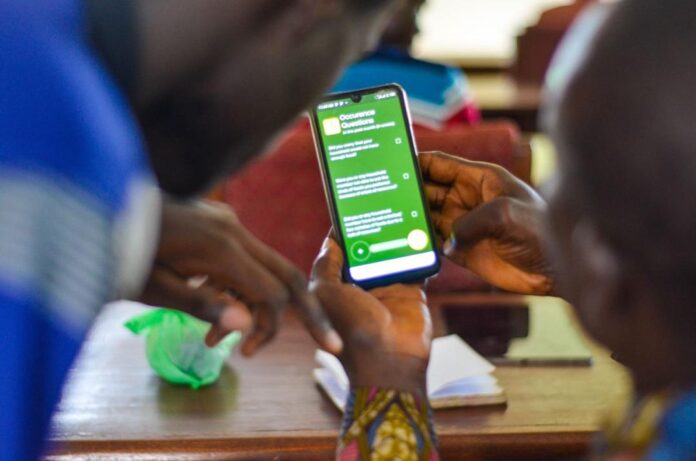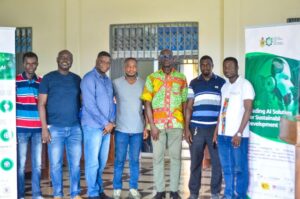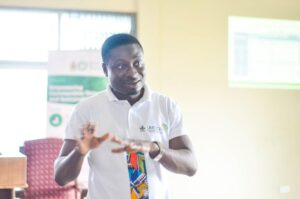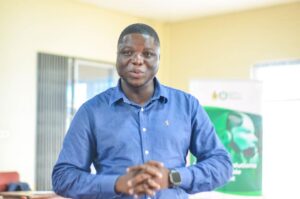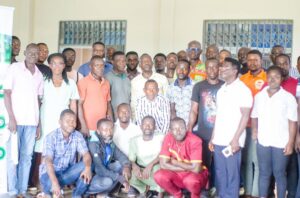Farmers in Kwabeng, in the Atiwa West District of the Eastern Region, have received training on a new Artificial Intelligence-integrated indigenous weather forecasting system developed under the Artificial Intelligence for Sustainable Development (AI4SD) project.
The initiative is led by the AI for Agric theme under AI4SD and funded by French Embassy in Ghana / Ambassade de France au Ghana with support from the Foreign, Commonwealth and Development Office (FCDO), International Development Research Centre (IDRC), and Artificial Intelligence for Development (AI4D).
The training aims to improve local farming decisions by merging indigenous weather forecasting methods with machine learning technology.
This system is a response to the growing unpredictability of weather patterns and the effects of illegal mining, commonly known as #galamsey, which have disrupted traditional weather indicators and undermined ecological accuracy relied upon by farmers.
Dr. Enoch Besah, a member of the agriculture team, led the stakeholder engagement and explained the motivation behind the project.
“One of the main challenges identified was the unavailability of reliable weather information to guide farming decisions. Farmers depended on traditional indicators such as cloud movement, moon phases, tree behaviour, and animal activity.
However, due to environmental degradation, including deforestation from galamsey, these indicators have become unreliable,” he said.
Dr. Besah noted that in 2022, the community began participating in a pilot project.
Based on data collected over two years, the Responsible AI Lab | RAIL, in collaboration with AI4SD, developed a mobile application tailored to the needs of local farmers.
“The app incorporates indigenous forecasts and uses a machine learning model trained on the farmers’ historical predictions and weather data.
The system provides feedback on the accuracy of their forecasts and improves over time as it learns from new inputs,” Dr. Besah explained.
Dr. Eric Tutu Tchao, AI for Agriculture Theme Lead under AI4SD, emphasized that the goal is not to replace indigenous knowledge but to enhance it.
“Initial results showed that farmers’ forecasts were about 50% accurate. With the integration of AI, our target is to raise that to 90%, possibly 99% over time. This is not a competition between indigenous knowledge and technology, it’s a collaboration,” he said.
The stakeholder session also addressed the broader impacts of illegal mining on local weather systems.
Several farmers acknowledged that changing environmental conditions have made it increasingly difficult to depend on traditional methods alone.
AI4SD AI in Agriculture theme members, Rev. Dr. Prince Odame and Dr. Caleb Melenya Ocansey, used the platform to educate farmers on the dangers of illegal mining and encouraged them to consider complementary income-generating activities.
Team members Mr. Esmond Adjei and Mr. Mackleode Ben-Boulo collected data during the meeting to further improve the new mobile application.
District Director of Agriculture, Mr. Ben Owusu, urged the farmers to take full advantage of the system.
“This is not like other apps. It is designed specifically for your environment, and it’s free. I encourage you to use the knowledge shared here to improve your farming practices,” he said.
The AI4SD team is expected to return in October to evaluate the effectiveness of the app and its impact on farming activities in the district.

